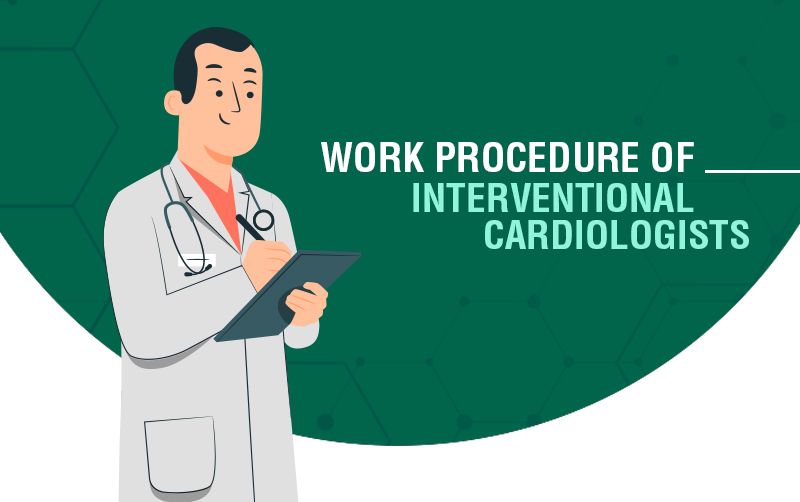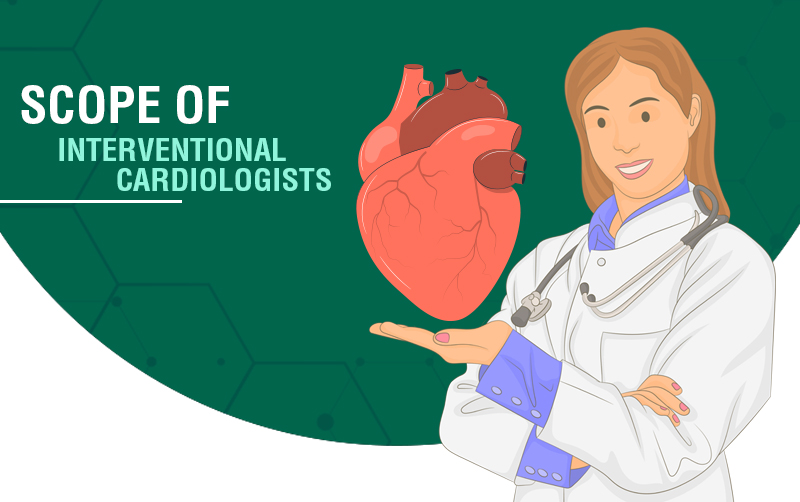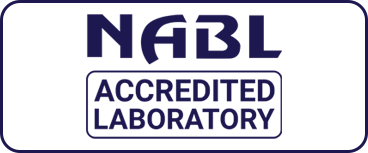Cardiologist vs. Interventional Cardiologist – Basic Differences You May Not Know
Oct 30, 2021
Interventional cardiology is a subspecialty of cardiology. It uses specialized catheter-based techniques. It is used to diagnose and treat the following diseases:
- Coronary artery disease
- Vascular disease
- Structural heart disease, and
- Congenital heart defects.
The best interventional cardiologists in Kolkata use
- Various diagnostic tools and
- Imaging techniques

They use these techniques and tools for measuring different cardiovascular functions. These cardiovascular functions include blood pressure and blood flow in major arteries throughout the body and also within the different chambers of the heart. Interventional cardiologists do not specialize in performing open heart surgeries.
There are many well-known interventional cardiologists in Kolkata practicing in multiple hospitals, nursing homes, polyclinics and personal clinics all over Kolkata.
What is the Difference between Interventional Cardiology and General Cardiology?
The major difference between interventional cardiology and general cardiology lies in the fact that interventional cardiologists are trained to perform specific catheter-based treatments for heart disease. General cardiologists on the other hand are not trained in those procedures.
General cardiologists specialize in the diagnosis and care of patients with different health conditions such as
- Hypertension
- High cholesterol
- High risk of stroke
- High risk of heart attack
They conduct and address a number of cardiovascular diseases. In order to address the many different cardiovascular concerns, they may also ask for different types of tests and procedures. General cardiologists may follow up on subspecialist care. They can also take care of patients’ long-term cardiovascular concerns.
How the Best Interventional Cardiologists in Kolkata Work
Interventional cardiologists are cardiology subspecialists. They are specialized doctors who are trained to place stents in clogged arteries. This process allows proper blood flow. This process also reduces the risk of stroke or heart attack. They also work to repair holes in the heart or place special devices in the heart to help it function properly.

The best interventional cardiologists in Kolkata use cutting-edge technology, latest techniques and complex advancements in this field of medicine. These techniques include:
- cardiac catheterization
- Transcatheter aortic valve replacement (TAVR), and
- Mitral valve replacement and repairs
Interventional cardiologists perform delicate procedures that can be life-saving. They help to treat patients with:
- Heart disease
- Valve defects, or
- Structural abnormalities
Interventional cardiologists usually are not ongoing patient care providers. They are rather a one-time provider or occasional care provider during the times when their specific expertise is required for a certain procedure.
Difference Between Cardiac Surgeons and Interventional Cardiologists
Cardiac surgeons perform traditional open-heart surgeries like coronary artery bypass surgery. Interventional cardiologists or general cardiologists may refer patients to a cardiac surgeon. This may happen in cases where their heart condition cannot be treated with medication. This may happen in cases where their heart needs to be treated with a less invasive catheter-based procedure.
General cardiologists do not perform any surgery, nor do interventional cardiologists.
Conditions and Areas addresses by Interventional Cardiologists
Interventional cardiologists in Kolkata encompasses many conditions and areas of expertise, including:
- Acute coronary syndromes
- Angina
- Angiogenesis
- Angioplasty and restenosis
- Angioplasty and stent placement
- Aortic aneurysm
- Aortic diseases and dissection
- Aortic valve replacement
- Transcatheter aortic valve replacement (TAVR)
- Arrhythmias
- Atrial septal defect (ASD)
- Cardiac catheterization
- Cardiac CT angiography (also called coronary angiography)
- Cardiac imaging
- Cardiac ultrasound
- Cardiovascular disease
- Carotid artery angioplasty and stenting
- Carotid artery disease
- Clinical trials
- Congenital heart disease
- Congenital heart disease, adult
- Congestive heart disease
- Congestive heart failure
- Coronary angiography
- Coronary angioplasty and stenting
- Coronary artery disease (CAD)
- Coronary artery disease, complex
- Diabetes and heart disease
- Echocardiography
- Gene therapy
- Heart attack
- Heart disease in women
- Heart failure
- Heart valve disease
- Hypertrophic cardiomyopathy
- Interventional cardiology
- Intravascular ultrasound
- Invasive cardiology
- Left ventricular assist device (LVAD)
- Mitral-valve surgery
- Non-invasive cardiology
- Nuclear cardiology
- Patent foramen ovale (PFO)
- Percutaneous coronary intervention (PCI)
- Percutaneous myocardial revascularization (PMR)
- Percutaneous valve repair
- Peripheral artery disease (PAD)
- Peripheral vascular disease (PVD)
- Preventive cardiology
- Renal artery stenosis
- Renovascular disease
- Sports medicine, cardiology
- Stem-cell therapy for heart failure
- Structural heart disease
- Vascular medicine



